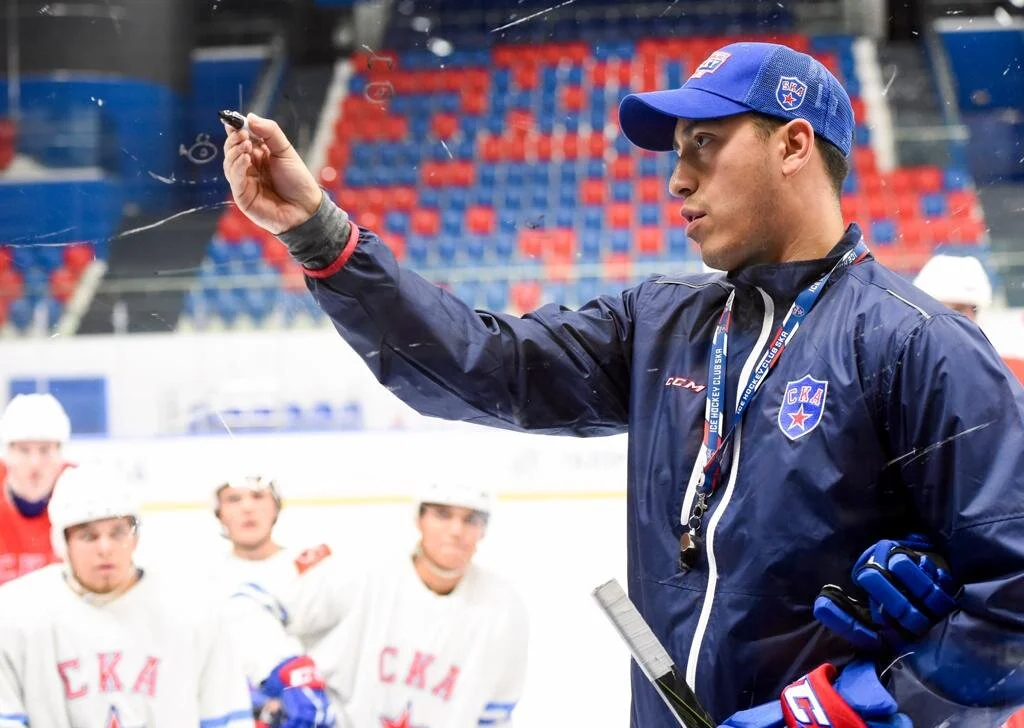KHABIBULIN ON ASKAROV
Eighteen-year-old netminder Yaroslav Askarov is one of the most hotly-anticipated prospects in the 2020 NHL Entry Draft. A right-glove goalie who has shown glimmers of brilliance in Russia’s Высшая хоккейная лига (VHL), Askarov was one of the most closely-monitored talents at the IIHF World Junior Championships.
Stanley Cup Champion and Olympic Gold Medalist Nikolai Khabibulin was the goaltending coach for Russia’s Juniors in Ostrava. I chatted with the NHL veteran regarding his experience of Askarov, and whether or not we should expect to see more of the promising youngster in the 2020-21 KHL season.
Gillian Kemmerer (GK): We had a somewhat limited snapshot of Yaroslav Askarov at the World Juniors tournament. Can you fill in any gaps, having worked with him in the lead-up?
Nikolai Khabibulin (NK): I know him from the inside. Even though World Juniors wasn't his best tournament, working with him in training camp and working with him during the World Championships, he was really a pleasure. I think he's got a good mentality, with all the size and quickness, and of course he needs to work on a lot of things and improve some things. But I feel that he has the chance to be an elite goalie.
GK: World Juniors is not always indicative of a goaltender’s trajectory. Carey Price, for example, did not have a stellar showing.
NK: Carey Price didn't have a particularly great first two or three years in the NHL either. Especially in the playoffs, and then little-by-little he improved. Actually, I think when he first got in the league, he was a little bit of a loose cannon from what I've heard, but then he grew up and matured a bit. He’s become a better goalie. He's been among the best for probably the past decade, if not more.
GK: Askarov is a rare right-glove goalie, which is often dissected in scouting reports. I am curious if you feel that this provides a particularly compelling advantage?
NK: I don't know. It seems like the majority of players shoot left. Maybe that has some benefit, but it seemed like it was a little bit harder to play against right-handed shooters when I played. So for him, if you reverse it, I don't know if it's an advantage. Maybe from the standpoint that he's different than most of the goalies, and guys will practice shots [on him]. During a game, it's all automatic. There's no time to really pick the spot, so they just shoot where they are used to shooting in practice. Perhaps because of that, he could be at an advantage as a right-glove goalie.
GK: SKA Saint Petersburg only played Askarov once last season. With Alexei Melnichuk to San Jose, do you feel that he will be given more chances in the KHL this year?
NK: I have a feeling that they will play him way more than the one game he got before World Championships. At least I expect that, and if he trains well and improves, I think it's going to be a hard decision for them not to play him more or give him some games here and there.
GK: SKA took a measured—and ultimately successful—approach to Igor Shestyorkin’s growth. They seem to have an appetite for prospect development versus some other clubs, which may penalize players for NHL aspirations through lack of ice time. How long do you think Askarov stays in Russia?
NK: I think [SKA] do like developing prospects. And also, I think they have—I shouldn't say a policy—it’s probably a mentality, to want guys to mature a little bit more before they leave. And for a goalie, they mature a little bit later. It's really hard to be like, let's say, Marc-Andre Fleury to start at 18 and play. So for him, if he stays until 20, 21, or 22, and gets some KHL games under his belt, I think it's all good—as long as he keeps improving.






